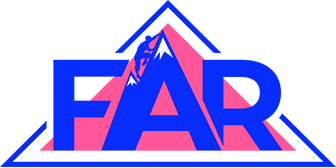Relapse prevention programs are cognitive-behavioral treatment programs designed to help individuals who have recently completed substance abuse treatment to avoid relapse and maintain their recovery. These types of programs focus on helping individuals to identify and change the thoughts and behaviors that contribute to their substance use, as well as providing skills for managing triggers and cravings. Relapse prevention techniques are typically taught in group or individual settings, and may be offered as an outpatient or aftercare service.
At Focused Addiction Recovery (FAR) in Wallace, North Carolina, our relapse prevention program can provide individuals with the tools and skills they need to reduce their risk of relapsing and maintain their recovery.
What Is
Relapse?
Relapse is defined as a return to substance use after a period of abstinence. It is a common occurrence among individuals in recovery and can be triggered by many different factors. Common triggers include stress, boredom, and negative emotions. A relapse prevention program can help individuals to identify their triggers and develop strategies for managing them. The program also teaches skills for coping with cravings and managing emotions.
How Does Addiction And Mental Illness
Occur Simultaneously?
There are a few different ways that someone might suffer from both an addiction and a mental illness. It’s important to note that addiction can sometimes be a symptom of mental illness, rather than two separate disorders. For example, someone with bipolar disorder might turn to alcohol to self-medicate when they’re experiencing mania.
Dual diagnosis treatment in North Carolina will take this into account when developing a treatment plan. Other times, someone might develop an addiction as a way of numbing the pain of their mental illness. This is especially common among people who suffer from PTSD or depression.
It’s also possible for someone to be predisposed to both mental illness and addiction because of their family history or genetic makeup.
What Are the Signs of Relapse?
Several signs may indicate that an individual is at risk for relapse. These include the following:
- Feeling depressed or anxious
- Feeling overwhelmed or stressed
- Experiencing strong cravings for drugs or alcohol
- Socializing with people who use substances
- Being in places where drugs or alcohol are used
- Having access to drugs or alcohol
If you are noticing any of these signs in yourself or someone you know, it is important to reach out for help. Our relapse prevention program in NC, can provide the support and guidance needed to avoid relapse and maintain recovery.
How Common Are
The Chances Of Relapse?
According to the National Institute on Drug Abuse, 40-60% of individuals who receive treatment for substance abuse will relapse within one year. However, there is not really one answer to this question as the chances of relapse occurs on a situational and person-to-person basis. The probability of a relapse varies depending on many factors, including the individual’s level of motivation, support system, and ability to cope with triggers and cravings.
However, evidence-based research studies has proven, those who participate in a relapse prevention program significantly reduce their risk of relapsing by 50%, and are more likely to maintain their recovery.
It’s important to note that no treatment program is 100% effective and that there is always the potential for relapse, especially during the early stages of recovery and after just finishing treatment.
What Is a Relapse
Prevention Plan?
Relapse prevention is a plan to help someone stay sober after they have completed treatment for substance abuse. The program focuses on helping individuals to identify and change the thoughts and behaviors that contribute to their substance use. In addition to this, they provide skills for managing triggers and cravings.
The program is typically delivered in group or individual format and may be offered as an outpatient or aftercare service. Relapse prevention programs are important because they can help people maintain their sobriety and avoid relapse.
Outpatient treatment is a type of care that allows individuals to live at home and receive treatment during the day. This method of care is typically meant for those who struggle with milder forms of a substance use disorder. This can last anywhere from 3 months to over a year and includes 10-12 hours per week of therapy (individualized or group).
A relapse prevention program can help those in outpatient treatment by teaching them skills to avoid relapse and maintain their recovery. The program focuses on helping individuals to identify and change the thoughts and behaviors that contribute to their substance use, as well as providing skills for managing triggers and cravings. The program is typically delivered in group or individual format and may be offered as an outpatient or aftercare service.
Aftercare services are designed to help individuals who have completed substance abuse treatment to maintain their sobriety and avoid relapse. Aftercare services may include individual or group counseling, 12-step meetings, and sober-living facilities. These services can help individuals to stay on track with their recovery and provide accountability and support.
Some other forms of treatment for substance use disorder are listed below:
- Inpatient treatment
- Medication-assisted detox (MAT)
- Addiction counseling
- Dual diagnosis treatment
There are many different forms of substance abuse treatment programs to choose from. Each level of care may not be right for everyone, as each person walking through the doors of our facility has unique experiences and personalities that make them who they are.
This meas, that people’s struggles and needs are unique, which makes the demand for access to high-quality behavioral healthcare even more important. Recovery outcomes will vary, as there’s no cookie-cutter or one-size-fits-all approach to addiction treatment.
Not everybody is ready, or is scared to take the step of reaching out for help, which experiencing this stigma is very common for those struggling. Therefore, to break the vicious cycle of substance abuse, professional treatment with the right resources is necessary. If left untreated like any other chronic disease, it can result in overdose and death.
Inpatient also known as residential treatment is a method of care intended for those who suffer from more severe forms of addiction. These programs typically last anywhere between 28 days and six months. During a patient’s stay, they’ll have access to professional therapists and psychiatrists on a weekly (sometimes even daily) basis. Not only that, but those who participate also receive room and board.
Medication-Assisted Detox (MAT) is a method of treatment that aims to relieve withdrawal symptoms. Withdrawal is one of the harshest realities to face in addiction treatment. Some symptoms include the following:
- Nausea
- Vomiting
- Fatigue
- Chills
- Fever
- Headaches
- Seizures
- Delerium tremors
- Hallucinations
- Irritability
- Depression
- Anxiety
MAT is meant for those who suffer from substance use withdrawal. When a person is experiencing withdrawal symptoms, it is difficult to remain sober. This is especially true when the only thing that will provide relief is the substance itself. Medically assisted detox provides patients with medication that curbs the symptoms of withdrawal, providing patients with relief while they detox.
Individual therapy is a type of psychotherapy that focuses on helping an individual address personal challenges, achieve personal goals, and overcome psychological difficulties. It is typically conducted by a licensed therapist who has experience working with individuals to help them address these types of issues.
Psychotherapy for addiction and mental illness has proven to be beneficial for people who are struggling with depression, anxiety, stress, grief, low self-esteem, and other personal challenges. It can help them gain insight into their challenges and learn new ways of coping with them. It can also provide a supportive environment where people can share their thoughts and feelings openly.
Individual therapy typically lasts for several sessions, depending on the needs of the individual. The number of sessions can vary from just a few to several months or even longer. Some people may only need a few sessions, while others may find that they need ongoing therapy for a longer period of time.
Dual diagnosis treatment is the process of treating both a mental health disorder and a substance use disorder simultaneously. This type of treatment is also sometimes referred to as integrated treatment or co-occurring disorders treatment.
Dual diagnosis treatment can be provided in a variety of different settings, including inpatient and outpatient facilities. In some cases, treatment may even be provided in a residential setting. The specific setting that is chosen will depend on the needs of the individual and the severity of their disorders.
Treatment of co-occurring disorders typically includes a combination of medication and therapy. Medication is often used to treat the symptoms of one or both disorders, while therapy is used to address the underlying causes of the disorders. In some cases, a dual diagnosis treatment plan may also include other forms of treatment, such as family therapy or support groups.
Dual diagnosis treatment is often most successful when it is tailored to the specific needs of the individual. Therefore, individuals must work closely with their treatment team to ensure that their treatment plan meets their unique needs.
Steps For Creating A
Relapse Prevention Plan
 A relapse prevention program should focus on helping individuals to identify and change the thoughts and behaviors that contribute to their substance use, as well as providing skills for managing triggers and cravings.
Some tips for creating a relapse prevention plan and the steps to take include:
A relapse prevention program should focus on helping individuals to identify and change the thoughts and behaviors that contribute to their substance use, as well as providing skills for managing triggers and cravings.
Some tips for creating a relapse prevention plan and the steps to take include:
- Identifying your triggers – What are the things that make you want to use drugs or alcohol? These triggers can be people, places, things, or emotions.
- Avoid high-risk situations – If you know that certain situations make it more likely for you to relapse, do your best to avoid them. This may mean avoiding certain people, places, or things.
- Developing a support network – Recovery is easier with the help of others. Find people who you can rely on for support, whether it’s family, friends, or a support group.
- Practicing healthy coping skills – When you’re faced with triggers or cravings, it’s important to have healthy coping mechanisms in place. This could include things like exercise, journaling, or deep breathing exercises.
- Monitoring your relapse warning signs – It’s important to be aware of the warning signs that could indicate a relapse is imminent. These may include changes in mood or behavior, increased drug cravings, or contact with people from your drug-using past. If you notice any of these warning signs, it’s important to reach out for help right away.
Focused Addiction Recovery Can Give You The Tools To Lower The Risk Of Relapse
Recovery isn’t a cakewalk, but at our comprehensive outpatient treatment facility in North Carolina, we allow you to focus on what’s most important, healing and recovery. Asking for help is a major step, but you’re not alone! If you or a loved one are interested in finding out more, contact us here today to get started on a journey to new beginnings.

